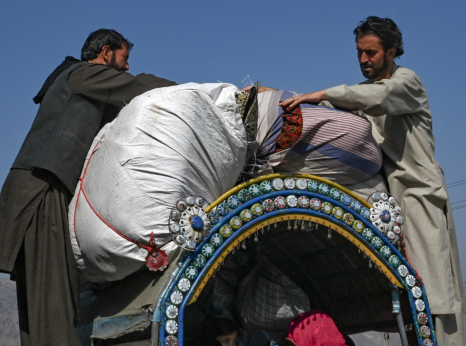Pakistan: 1.4 million refugees need registration renewal

In October 2023, the interim government announced the ‘Illegal Foreigners’ Repatriation Plan’, a three-phased plan to deport Afghans from Pakistan. In the first phase, unregistered Afghan nationals were given a 30-day deadline to leave the country or face deportation. More than 468,000 Afghans returned to Afghan in the months of October, November and December 2023. The announcement was followed by a wave of harassment and arbitrary detention across the country. Since then, Afghan nationals continue to live in fear and anxiety.
The second phase of the Plan was initiated on 1 April 2025 when the government announced that it will deport approximately 800,000 Afghan Citizen Card (ACC) holders. These cards were issued by the Pakistan government between 2017 and 2019. The government also announced that it will expel all Afghan nationals from the cities of Islamabad and Rawalpindi and urged Afghan nationals in Pakistan awaiting relocation to third-countries or with pending visa applications to leave the country by the end of April 2025. The authorities have warned of ‘intense’ action now that the deadline has expired. A total of 1,088,133 Afghans have returned to Afghanistan from Pakistan from September 2023 to 7 June 2025, according to the UN International Organization for Migration. The third and last phase of the Illegal Foreigners’ Repatriation Plan would be the deportation of UNHCR-issued Proof of Registration (PoR) card holders, expected to be upon their expiry on 30 June 2025.
According to the UNHCR, more than 1.4 million Afghans have been issued PoR cards. The PoR cards were originally set to expire at the end of June 2024, however, the government announced a year-long extension setting the new expiry date to 30 June 2025. The status of PoR card holders will be unclear if the Pakistani authorities do not renew their validity.
Under the de facto Taliban authorities, Amnesty International has documented a litany of human rights violations such as extrajudicial executions, arbitrary arrests, torture, enforced disappearances of dissenting voices, journalists, human rights defenders, protesters, artists, and former government employees, among others. If forced to return, Afghan refugees and asylum seekers risk reprisals and other human rights violations from the Taliban de facto authorities. Since 1 April 2025 alone, 51,309 women and 64,010 girls have been forced to return to Afghanistan. Upon their return, they will be denied the right to education and right to work. The Taliban have imposed more than 70 draconian edicts intensifying restrictions on women and girls, attempting to erase them from public life.
In January 2025, the Office of the Prosecutor of the International Criminal Court (ICC) filed for arrest warrants against the Taliban Supreme Leader, Haibatullah Akhundzada, and the Taliban Chief Justice, Abdul Hakim Haqqani, for their responsibility for the crime against humanity of gender persecution in Afghanistan. In April 2025, UN experts, including the Special Rapporteur on the human rights situation in Afghanistan, Special Rapporteur on trafficking in persons, especially women and children, Working Group on discrimination against women and girls, Special Rapporteur on the promotion and protection of human rights and fundamental freedoms while countering terrorism, Special Rapporteur on violence against women and girls, its causes and consequences, Special Rapporteur on the right to adequate housing, and Special Rapporteur on Afghanistan, called on Pakistan to stop the forcible removal of Afghans. The principle of non-refoulement applies to all countries, as a principle of international customary law. Pakistan is also a signatory of the International Covenant on Civil and Political Rights and the Convention Against Torture 1984, which include the principle of non-refoulement.